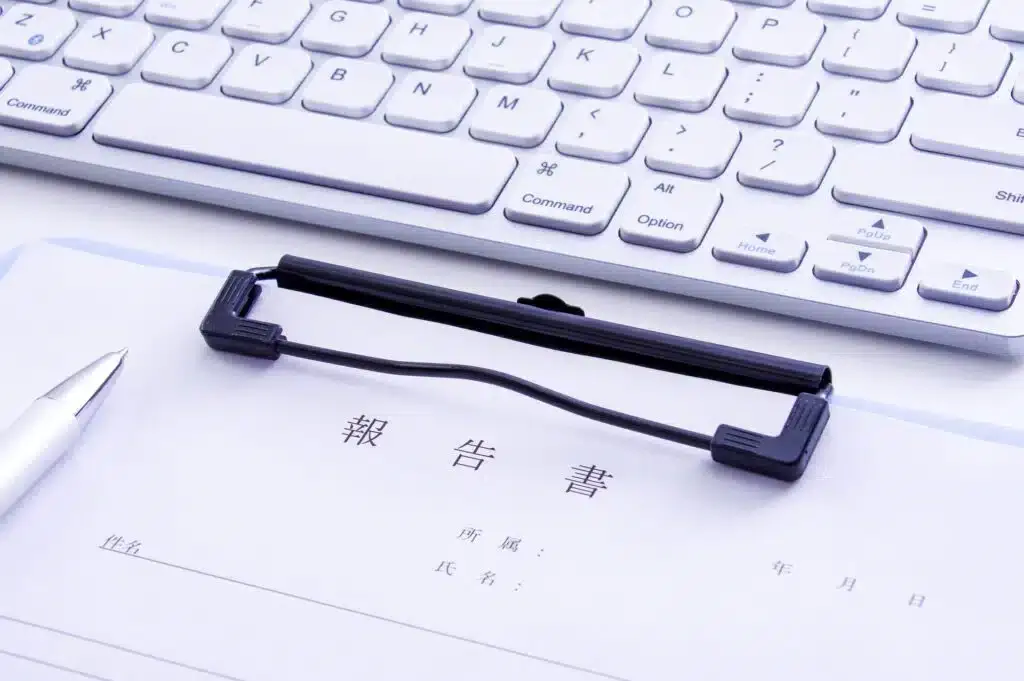Duties of Care and the Business Judgment Rule in Japanese Corporate Law

In Japanese corporate governance, directors play a pivotal role in ensuring the growth and sustainability of a company. This role comes with significant legal responsibilities. Of particular importance are the concepts of “duty of care as a good manager” and the “business judgment rule.” These concepts define the standard of care expected of directors in the performance of their duties and the scope of their liability when their decisions are retrospectively questioned. The Japanese Companies Act imposes a high standard of duty of care on directors while also demanding respect for business judgment, so as not to hinder the risk-taking essential to corporate management.
This article explains the duty of care as a good manager and the business judgment rule under Japanese corporate law, including their definitions, legal basis, and the specific application in Japanese case law. By grounding the discussion in Japanese statutes and actual case law, the article aims to deepen the understanding of corporate governance in Japan.
Duty of Due Care as a Director Under Japanese Corporate Law
Japanese Corporate Law and the Duty of Due Care as a Director
Directors are entrusted with their duties by the company and therefore owe a ‘duty of due care’ to the company. This duty refers to the level of care that would generally be expected from someone in their social position. Article 330 of the Japanese Companies Act stipulates that “the relationship between a stock company and its officers and accounting auditors shall follow the provisions concerning mandates,” thereby applying the duty of due care under Article 644 of the Japanese Civil Code to directors. Article 644 of the Japanese Civil Code states, “The agent must perform the mandated affairs with the care of a good manager in accordance with the purpose of the mandate.” This means that directors are expected to utilize their knowledge and experience to the fullest extent in order to protect the best interests of the company (shareholders), which is considered a significantly high duty.
The duty of due care under Japanese Corporate Law demands a high standard of ‘care of a good manager’ based on the mandate contract under Japanese Civil Law. This standard implies that directors not only avoid negligence but also actively use their professional knowledge and experience to act in the best interests of the company, embodying a ‘duty of care as a professional.’ Understanding the gravity of individual responsibility in Japanese corporate governance is crucial, and this high duty illustrates that directors cannot escape liability by simply claiming ignorance. They are responsible for actively gathering, analyzing, and making decisions based on information.
Closely related to the duty of due care is the ‘duty of loyalty.’ Article 355 of the Japanese Companies Act states, “Directors must perform their duties faithfully for the stock company, in compliance with laws and regulations, the articles of incorporation, and resolutions of the shareholders’ meeting.” The duty of loyalty requires directors to prioritize the interests of the company, ensuring they do not inappropriately use the company’s know-how for their own benefit or that of third parties. The Supreme Court of Japan has ruled that the duty of loyalty is not a ‘separate high duty’ from the duty of due care that accompanies the usual mandate relationship but rather a clarification and extension of it (Supreme Court decision, June 24, 1970, Volume 24, No. 6, page 625). This interpretation is understood to mean that in practice, directors should not consider the two duties separately but should act faithfully within the comprehensive framework of the duty of due care. The Supreme Court of Japan’s positioning of the duty of loyalty as a clarification of the duty of due care, and not as a separate high duty, implies that directors do not need to perform complex adjustments between the two different duties. This integrated approach provides a clearer and more unified code of conduct for directors acting in the best interests of the company, enhancing the predictability of legal compliance.
Responsibilities of Directors for Breaching the Duty of Care in Japan
When a director breaches their duty of care, they may face various responsibilities. The most direct is the liability for damages to the company, also known as “duty of negligence liability.” Article 423, Paragraph 1 of the Japanese Companies Act clearly stipulates, “Directors, accounting advisors, auditors, executive officers, or accounting auditors (hereinafter referred to as ‘officers, etc.’ in this Chapter) shall be liable to compensate the company for damages incurred due to their negligence in performing their duties.” This applies when a director neglects their duty of care in the execution of their duties, causing damage to the company. The scope of damage compensation is limited to the damages that have a “substantial causal relationship” with the act of breach of duty.
Furthermore, if the breach of the duty of care is due to the director’s malice or gross negligence, they may also be liable for damages to third parties other than the company. Article 429, Paragraph 1 of the Japanese Companies Act states, “When officers, etc. perform their duties with malice or gross negligence, they shall be liable to compensate for the damages incurred by third parties.” This provision is interpreted as a special statutory liability established out of policy considerations to prevent unforeseen damages to third parties when the company lacks the resources. The fact that a breach of the duty of care can lead to liability for negligence towards the company, and in cases of malice or gross negligence, to liability for damages to third parties, and even the possibility of dismissal, indicates that the legal risks for individual directors are extremely high. This high risk underscores the importance of thorough due diligence, transparency in the decision-making process, and proper record-keeping when directors make management decisions. Even if the outcomes are not as expected, evidence of a proper process can potentially absolve responsibility, making it crucial for directors to clearly document the decision-making process and rationale for their own legal protection.
In addition, directors who breach their duty of care may also be dismissed from their position by a resolution of the shareholders’ meeting. Article 339, Paragraph 1 of the Japanese Companies Act stipulates, “Officers and accounting auditors may be dismissed at any time by a resolution of the shareholders’ meeting,” and Article 341 of the Japanese Companies Act sets forth the requirements for such a dismissal resolution.
The Principle of Business Judgment and Its Application Under Japanese Law
What is the Principle of Business Judgment?
Corporate management involves a continuous series of decisions made under uncertainty and risk. Directors, entrusted by shareholders, exercise broad discretion in making risky decisions such as entering new business ventures or engaging in mergers and acquisitions. However, if these decisions ultimately result in losses for the company, directors may be questioned for breaching their duty of care. In such cases, the ‘Principle of Business Judgment’ serves as the standard for assessing the legal responsibility of the directors’ management decisions.
The Principle of Business Judgment holds that directors should not be found in breach of their duty of care or loyalty, as long as there is no careless error in the facts underlying their decisions and the content of the decisions is not grossly unreasonable. The purpose of this principle is to ensure that managers can focus on risk-taking management to enhance corporate value without fear of retribution. It respects the discretionary power of directors to make risky management decisions without intimidation. However, the Supreme Court of Japan maintains a cautious stance on actively endorsing this principle as an explicit legal formula. This suggests that directors should not perceive the Principle of Business Judgment as a ‘universal absolution.’ Instead, even if the outcomes are unfavorable, directors must concretely demonstrate that their decision-making process and content were rational. The principle functions as a defense mechanism only when accompanied by rigorous due diligence and a transparent decision-making process. It does not completely eliminate the possibility of directors being held accountable for outcomes; rather, it implies that they may be strictly held responsible for the ‘process.’ Therefore, it is crucial for directors to preserve evidence of their information gathering, analysis, consultations with experts, and board discussions during the decision-making process.
The Principle of Business Judgment and the Stance of Japanese Courts
In applying the Principle of Business Judgment, the tendency of lower Japanese courts to distinguish between the ‘process’ (procedural aspect) and the ‘content’ (substantive aspect) of decisions, and to apply strict scrutiny standards to the process, suggests that the ‘process’ of decision-making is as important, if not more so, than the ‘outcome’ for directors. This means that thorough information gathering, seeking expert opinions, conducting risk assessments, and properly recording and documenting all these processes can serve as a strong defense against future accountability. Since courts emphasize the procedures and information gathering leading up to a decision when evaluating the rationality of a director’s judgment, it is key for directors to clarify the ‘why’ and ‘how’ of their decisions and to preserve evidence, regardless of the outcome’s success or failure.
The Supreme Court of Japan’s stance is cautious regarding the Principle of Business Judgment and does not show an active endorsement. The Supreme Court tends to issue case-by-case decisions on the rationality of decisions without explicitly using the term ‘Principle of Business Judgment.’ This may be influenced by past experiences where the principle was abusively used as a ‘get-out-of-jail-free card’ to escape directorial responsibility (as seen in the Nomura Securities loss compensation shareholder representative lawsuit). The Supreme Court’s stance suggests the importance of directors always being prepared to explain that their decisions were objectively rational, rather than overly relying on the Principle of Business Judgment as an absolute shield. The cautious approach of the Supreme Court of Japan towards the principle, along with the ongoing discussions on the framework of judgment in lower courts, indicates that this legal doctrine is still evolving and interpretations may change in the future. This dynamic situation underscores the need to constantly monitor the latest case law and academic trends and adapt corporate governance practices accordingly.
Understanding the Duty of Due Care and the Business Judgment Rule in Japanese Case Law
To grasp how the duty of due care and the business judgment rule are applied in actual court cases, it is essential to examine specific precedents. Here, we introduce two particularly important cases.
The Japan Sunrise Case Verdict (Tokyo District Court, September 27, 1993)
A Corporation, a small-scale company primarily engaged in building leasing, embarked on stock investments (margin trading), which were popular at the time, as a means to eliminate its deficit. After amending its articles of incorporation to include the trading of securities, the company initially made profits. However, due to a stock market crash, A Corporation suffered a massive loss amounting to 70% of its investment. Shareholder X filed a derivative lawsuit against Representative Director Y1, as well as Directors Y2 and Y3, who failed in their duty to supervise, seeking damages.
The Tokyo District Court recognized the breach of the duty of care of good manager by Representative Director Y1 and accepted the claim. The judgment pointed out that despite being able to foresee the potential for company losses and a management crisis due to stock price fluctuations, Y1 disregarded this possibility and incurred losses that jeopardized the company’s survival by investing a large amount of borrowed funds. In particular, for new business ventures, directors owe a duty of care to avoid engaging in activities that, considering the company’s size, nature of the business, and amount of operating profit, could result in losses difficult to recover from and whose risks are foreseeable. The court also determined that there was no necessity for A Corporation to engage in the stock investments in question. Furthermore, the court affirmed the breach of supervisory duty by Directors Y2 and Y3 regarding the actions of Representative Director Y1.
This verdict, while acknowledging that corporate management involves risks, demonstrated a strict stance on the accountability of directors’ actions. Noteworthy is the distinction made between the process leading to the decision (procedural aspect) and the content of the decision (substantive aspect) when considering the application of the business judgment rule. The court’s innovative approach in separately examining the procedural aspect, such as pre- and post-investment research and the balance with the company’s financial capacity and size, and the substantive aspect, the necessity of the stock investment, has set a precedent. It clarified that when directors make risky management decisions, the appropriateness of the decision-making process will be scrutinized. The verdict sends a clear signal that courts, when evaluating directors’ business decisions, will focus not only on whether the outcome was successful or not but also on the information the decision was based on, the procedures followed, and the extent of consideration given. This ‘process-oriented’ approach emphasizes the importance of detailed record-keeping of minutes and related documents in practice, to prove that an appropriate process was followed, highlighting the significance for directors to be able to demonstrate this should they be held accountable in the future.
Judgment Related to the Disappearance of Pension Assets in the AIJ Investment Advisors Scandal (Tokyo District Court, July 14, 2016)
Company A, engaged in securities sales, saw its CEO, Mr. B, collude with CEO Mr. D of Company C to conduct sales activities using falsified net asset values (NAVs) for a pension asset management fund. This fraudulent activity led to substantial losses for the fund. Pension funds that had purchased into the fund filed a lawsuit seeking damages against Company A’s external director, Mr. Y1, and full-time corporate auditor, Mr. Y2, for neglecting their duty to monitor and audit the CEO’s illegal actions.
The Tokyo District Court did not recognize a breach of the monitoring and auditing duties by external director Mr. Y1 and full-time corporate auditor Mr. Y2. The court stated that directors’ monitoring duties are based on negligence and that liability is only affirmed when there is a situation where illegal business execution could have been discovered, and the directors could have been aware of that situation. The court meticulously examined each point raised by the plaintiffs as circumstances that should have aroused suspicion among the directors, including the fund’s performance, industry magazine articles, redemption requests, and financing cases. The court concluded that these circumstances alone were not sufficient for Mr. Y1 and Mr. Y2 to recognize or suspect the sales activities using the falsified NAVs.
This judgment is significant in demonstrating that the monitoring and auditing duties of directors, especially external directors and corporate auditors, are not infinitely extensive. Directors are required to fulfill their duty of care based on information reasonably available to them, but they are not expected to foresee and detect all fraudulent activities. This clarifies the limits and prevents the “chilling effect” on potential excellent candidates hesitant to take on director roles due to overly stringent responsibilities. The judgment implies that decisions are made based on “information that was reasonably accessible,” not assuming that directors are aware of all information. While this allows directors the possibility of avoiding liability due to lack of information, the judgment indirectly suggests that companies have a responsibility to build a robust internal control system that transparently and timely communicates critical information (especially signs of risks or fraud) to ensure directors can appropriately fulfill their duties.
Japanese Court Perspectives as Illustrated by Case Law
The Japan Sunrise case ruling strictly recognized a breach of the duty of care by directors in the face of massive losses due to speculative stock investments. This decision emphasized the foreseeability of risks in light of the company’s size and the nature of its business, as well as the lack of “necessity” to engage in such business activities. In contrast, the AIJ Investment Advisors pension fund loss case ruling denied the breach of monitoring duties by external directors and auditors. This ruling highlighted that directors’ duties are limited to situations that could be “reasonably discovered,” determining that there is no obligation to foresee all instances of misconduct. These two rulings demonstrate a balanced approach by Japanese courts, where the duty of care is a high standard, yet the determination of its breach is based on the “reasonableness” and “foreseeability” of the specific circumstances. In the Japan Sunrise case, the directors were severely criticized for disregarding risks that “could have been predicted” and for engaging in business activities without a “justifiable necessity,” acknowledging their responsibility. This sends a strong message that directors should proactively avoid risks and prioritize the company’s continuity above all. On the other hand, the AIJ case applied the standard of whether the external directors and auditors “knew or should have known, or at least should have suspected” the circumstances, ultimately denying responsibility as there were no conditions that should have been discovered or suspected. This illustrates the limitation that directors’ duties are not infinite but are based on reasonable information gathering and judgment within a rational scope. The contrast between these cases clearly suggests the practical standards of Japanese courts, where directors’ responsibilities are judged not merely on the outcomes but on the “reasonableness” and “foreseeability” of actions in individual situations.
Conclusion
The duty of care and the business judgment rule are two essential concepts in the Japanese Companies Act that are indispensable in modern corporate governance. The duty of care requires directors to exercise a high level of attention as “good managers” for the company, and failure to do so can lead to significant legal liabilities for the company and third parties. On the other hand, the business judgment rule respects the discretionary power of directors, allowing them to make innovative decisions without fear of risks. Japanese courts tend to focus on the balance between these two principles, emphasizing the rationality and carefulness of the decision-making ‘process’ in particular. The Japan Sunlight Case ruling scrutinized the directors’ decision-making process and necessity, while the AIJ Investment Advisors Pension Fund Loss Case ruling provided concrete guidelines for the application of the duty of supervision by limiting its scope to reasonable foreseeability.
Deeply understanding and properly adhering to these principles is extremely important for companies and individuals conducting business in Japan. The Japanese legal system is complex, and its interpretation and application can vary greatly depending on individual cases and court decisions. Monolith Law Office has a wealth of experience in Japanese corporate legal affairs and has supported numerous clients, especially on the themes of director liability and corporate governance. Our firm includes several English-speaking attorneys with foreign legal qualifications, enabling us to understand Japan’s complex legal regulations from an international perspective and provide practical advice. If you have any questions about the Japanese Companies Act or specific inquiries regarding corporate governance and director liability, please do not hesitate to contact Monolith Law Office. We are committed to supporting your business activities in Japan with our expert knowledge and ensuring smooth operations.
Category: General Corporate





















